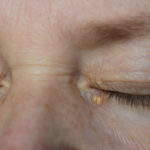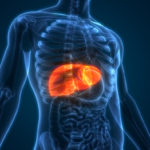The Connection Between Stress Relief and Liver Health
Avoiding stress is a common suggestion for anyone who receives the unfortunate news of a serious health condition, including liver disease. Learn how a basic principle of Traditional Chinese Medicine can help relieve stress and discover easy ways to support the health of your liver in the process.
Within the 3,000 year-old theories of Traditional Chinese Medicine (TCM), there lies a very clear connection between stress relief and liver health. Just as in Western medicine’s perception of the organ, TCM understands the liver to be responsible for a great number of essential tasks. Accordingly, the most important function of the liver is to ensure the smooth flow of energy (qi) throughout the body. The free flow of qi maintains the health of all the body’s systems. When the qi becomes congested, pain, distress or illnesses result.
The most closely connected aspect of qi flow is the person’s current emotional state. Just as flexing the arm tightens the muscle to create a visible bulge, an accumulation of emotional stress will tighten and congest a person’s qi. Even for those unfamiliar with TCM, the experience of a pounding headache following a stressful event is well understood. For practitioners of this type of medicine, the chain of events is even clearer since the pathway containing liver energy extends to the top of the head. As there is no separation between physical and emotional health, the association between emotions and liver health is a primary principle of TCM as a holistic practice.
Reversing Congested Qi
The goal of living with and managing liver disease is learning to prevent its progression. Regardless of the medical treatment strategy employed, people with a diseased liver aim to prevent further hardening and distortion of liver tissue. Any action that increases congestion within the liver allows toxins to spend more time there, increasing the potential for damage. Since emotional stress is a prime factor in liver congestion, it is very important for those with liver disease to avoid stress whenever possible.
Relaxation is the preferred, natural, self-administered antidote to emotional stress. Popular relaxation techniques include yoga, breathing exercises, guided imagery, qi gong and meditation. All of these are excellent and effective choices to assist in the smooth flow of qi. However, each individual is unique and there may be other, more beneficial techniques in providing stress relief. Conducted by the author of this article, the poll question “How do you relax?” was asked of 25 randomly selected blue-collar men in a non-health related setting. The two most common replies were watching television and drinking beer.
These honest replies likely represent a significant portion of Americans’ perceptions about relaxation. While signing up for a meditation class may not be everyone’s preference, there are some better choices than watching TV or consuming alcohol. An obvious perpetuator of liver illness, alcohol should be avoided in all cases. While watching television is better than drinking beer, it fails to minimize stress.
· TV can create stress – The most popular programs (sporting events, news and dramas) include an intensity that does not contribute to the smooth flow of qi.
· Watching TV can be a vacation for the mind – Television watching may be associated with relaxation because it occupies the viewer’s mind, distracting the person from stress. While this escape may feel like relief, it is not actively smoothing the qi.
Practical Qi Smoothing
Anyone can benefit from relaxation without actively participating in an organized holistic practice. Regardless of the method you choose, the goal is to relax, as well as clear and focus the mind. A few of the men in the aforementioned poll indicated fishing and listening to music as preferred methods of relaxation. Unlike drinking beer or watching TV, both activities offer an excellent opportunity for true relaxation. Actually, the inward process of relaxation can be achieved virtually anywhere. You know you are on the right track for smoothing your qi flow when you:
1. hold the conscious intent of clearing your mind.
2. consciously relax any taut muscles in your body.
3. are conscious of regulating and slowing your breathing.
4. consciously choose thoughts that are relaxing to you.
As you may have noticed, consciously directing your thoughts and mechanics are key players in true relaxation. The beauty of smoothing your own qi is that only you have the power to do so – and only you know when it is happening.
Consciously Choosing Health
Those with liver concerns understandably have an added level of stress, making relaxation and the smoothing of qi an even greater priority. Knowing you are taking every step to help support your liver and learning ways to relax will help in reducing stress, one of the primary goals in preventing the progression of liver disease.
Maciocia, Giovanni, The Foundations of Chinese Medicine, Churchill Livingstone, New York, NY, 1989.
www.liverfoundation.org, Coping with HCV Infection: Alternative or Complementary Approaches, American Liver Foundation, 2006.
www.spiritualpath.org, Meditation – The Path to Your Soul, Dr. Blanca Greenburg, spiritualpath.org, 2006.











